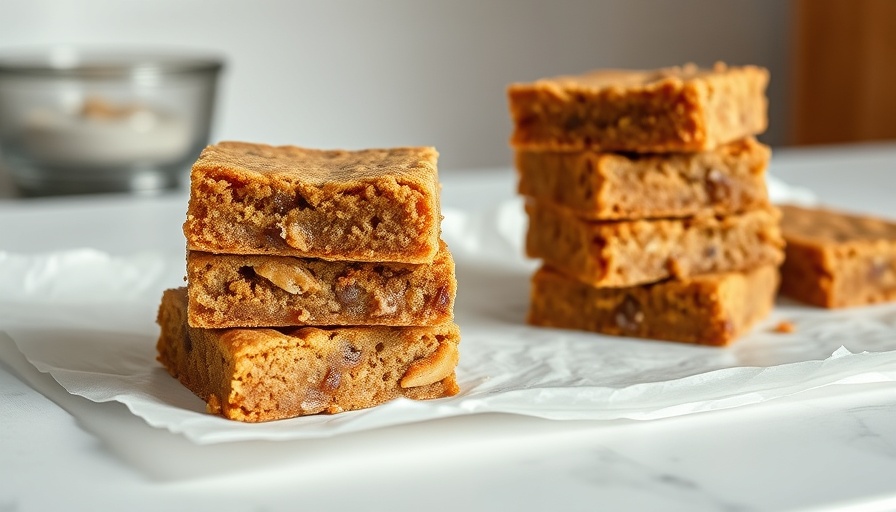
Indulge Guilt-Free: The Power of Protein-Rich Desserts
Are you searching for a dessert that satisfies your sweet tooth without compromising your health goals? Look no further than Vegan Peanut Butter Protein Blondies. These innovative treats not only offer a delicious taste but also pack a nutritional punch. Perfect for those craving a healthy indulgence, these blondies are made with nourishing ingredients like peanut butter, banana, and almond flour, ensuring you're fueling your body with more than just empty calories.
Simple Ingredients for a Healthier Option
This one-bowl recipe highlights how simple ingredients can come together to create a dessert that checks all the boxes for health-conscious individuals. With only a few components—like creamy peanut butter, ripe bananas, and date syrup—these blondies are naturally sweetened, avoiding refined sugars entirely. In just 30 minutes, you can whip up a batch that aligns perfectly with a vegan and gluten-free lifestyle.
Perfect for Any Occasion: Fuel Your Day Right!
Whether you're post-workout or need a quick snack on the go, these protein blondies serve as a convenient option to fuel your day. They can be refrigerated for easy meal prep, ensuring you always have a quick bite that offers both satisfaction and nutrition. Plus, they can be topped with vegan chocolate chips and crushed peanuts for an extra layer of flavor and texture!
Why Vegan Desserts Are Worth It
Opting for vegan desserts is not just a trend but a lifestyle choice that embraces health and sustainability. These blondies exemplify how delectable can coexist with nutritious and promote overall well-being. With veganism on the rise, transitioning to plant-based options can help reduce your carbon footprint while still catering to your sweet cravings.
Now that you know how easy it is to make delightful, healthy desserts, it's time to take action! Gather your ingredients and treat yourself to these Vegan Peanut Butter Protein Blondies. Not only will you enjoy their taste, but you’ll feel great knowing you made a wholesome choice for your health!
 Add Row
Add Row  Add
Add 




Write A Comment